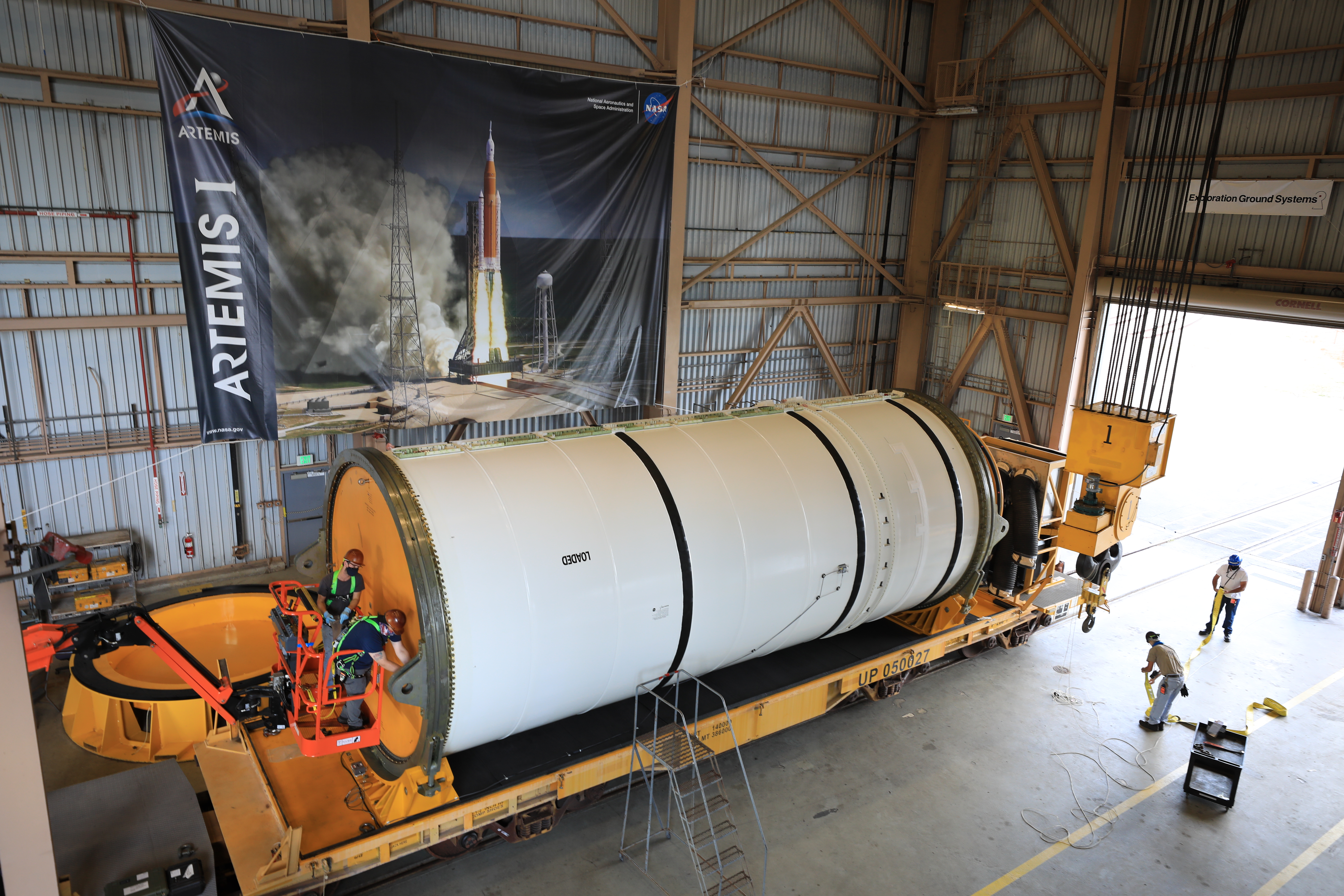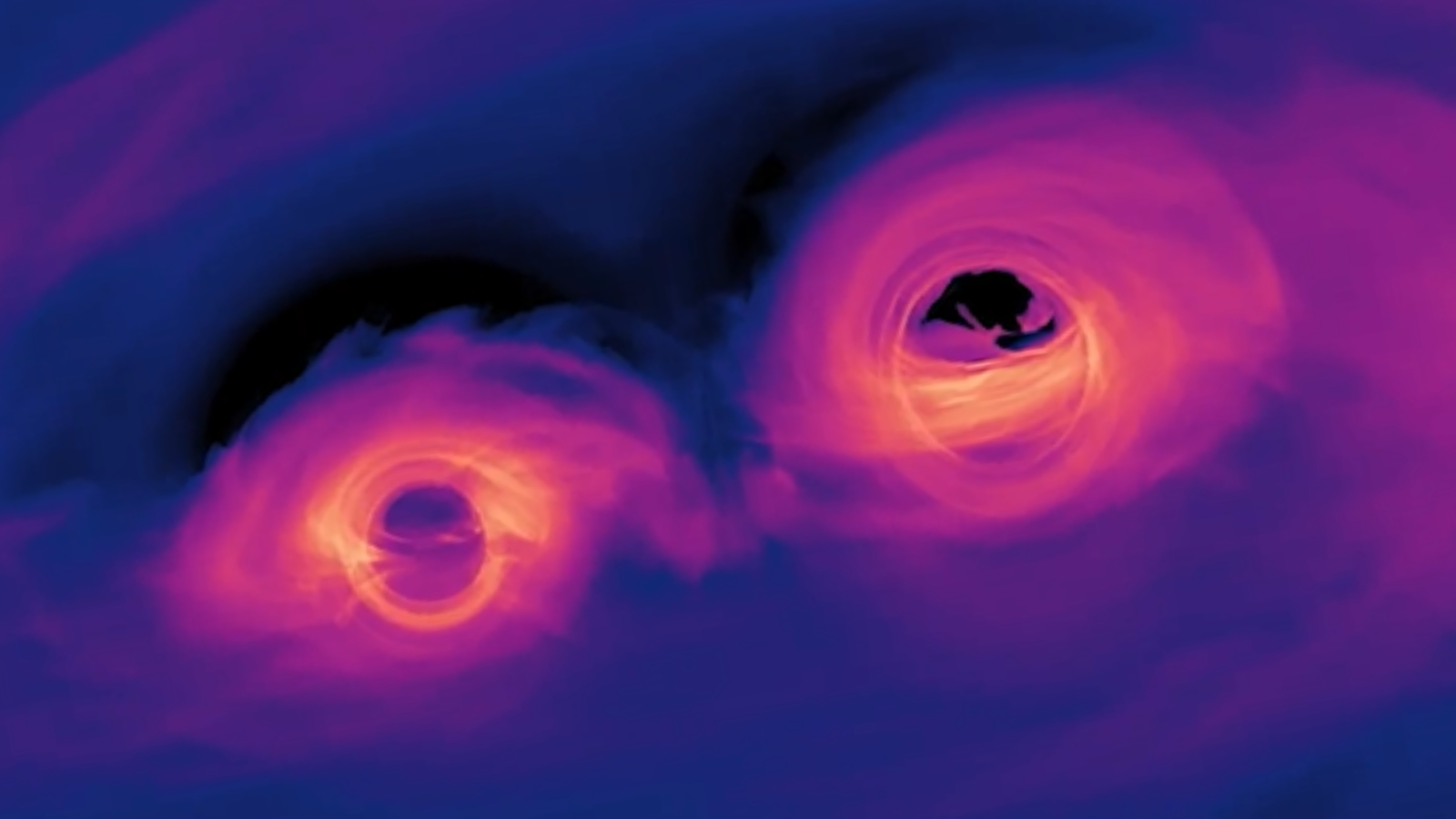NASA efforts had a $65 billion economic impact last year, agency report shows
That's 312,000 jobs.

Breaking space news, the latest updates on rocket launches, skywatching events and more!
You are now subscribed
Your newsletter sign-up was successful
Want to add more newsletters?

Delivered daily
Daily Newsletter
Breaking space news, the latest updates on rocket launches, skywatching events and more!

Once a month
Watch This Space
Sign up to our monthly entertainment newsletter to keep up with all our coverage of the latest sci-fi and space movies, tv shows, games and books.

Once a week
Night Sky This Week
Discover this week's must-see night sky events, moon phases, and stunning astrophotos. Sign up for our skywatching newsletter and explore the universe with us!

Twice a month
Strange New Words
Space.com's Sci-Fi Reader's Club. Read a sci-fi short story every month and join a virtual community of fellow science fiction fans!
NASA's first economic impact report suggests that the agency generated nearly $65 billion in economic impact during fiscal year 2019, with much of that activity coming from the Artemis program to return astronauts to the moon by 2024.
The agency released the report (which covers the period between Oct. 1, 2018 to Sept. 30, 2019) as it continues negotiations for its fiscal 2021 budget. That 2021 budget request by the Trump administration calls for a 12% increase for the agency to $25 billion, including a substantial contribution to Artemis for a planned 2024 astronaut landing on the moon. That budget has not been approved yet, as both the House and Senate continue markups of their versions of the bill. On Sept. 30, the Senate averted a government shutdown by passing a stopgap measure that will keep the government running until Dec. 11, according to The Hill.
Related: Beacon of hope? NASA sees inspiration parallels between Apollo and Artemis moonshots
The new study, which you can read on NASA's website, was conducted by the Nathalie P. Voorhees Center for Neighborhood and Community Improvement at the University of Illinois at Chicago.
"In this new era of human spaceflight, NASA is contributing to economies locally and nationally, fueling growth in industries that will define the future, and supporting tens of thousands of new jobs in America," NASA Administrator Jim Bridenstine said in a statement. "With an investment of just one-half of 1% of the federal budget, NASA generates significant total economic output annually."
The report estimates that NASA supported more than 312,000 jobs across the U.S., including 69,000 jobs in the agency's "moon to Mars" initiative, which includes Artemis. As for economic impact, the report estimates NASA generated more than $64.3 billion in total economic output, with roughly 20% ($14 billion) of that coming from the moon to Mars initiative.
The report adds that every state benefits economically from NASA, with eight states generating an impact of at least $1 billion each due to their affiliation with NASA. Additionally, the agency has more than 700 active international agreements, including the International Space Station, that have further spurred economic development. NASA also counts more than 2,000 spinoff technologies from its research since 1976, including a ventilator this year designed for coronaviru patients and created in 37 days.
Breaking space news, the latest updates on rocket launches, skywatching events and more!
Follow Elizabeth Howell on Twitter @howellspace. Follow us on Twitter @Spacedotcom and on Facebook.

Elizabeth Howell (she/her), Ph.D., was a staff writer in the spaceflight channel between 2022 and 2024 specializing in Canadian space news. She was contributing writer for Space.com for 10 years from 2012 to 2024. Elizabeth's reporting includes multiple exclusives with the White House, leading world coverage about a lost-and-found space tomato on the International Space Station, witnessing five human spaceflight launches on two continents, flying parabolic, working inside a spacesuit, and participating in a simulated Mars mission. Her latest book, "Why Am I Taller?" (ECW Press, 2022) is co-written with astronaut Dave Williams.
